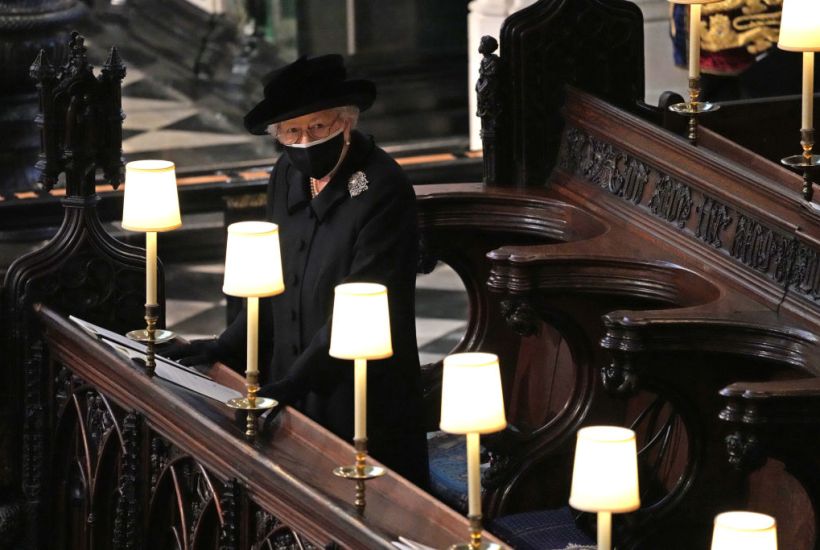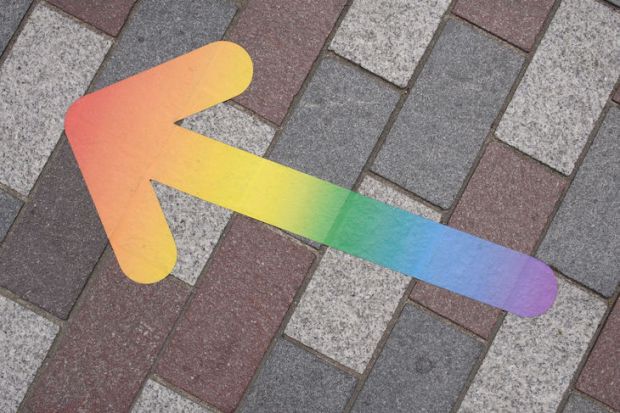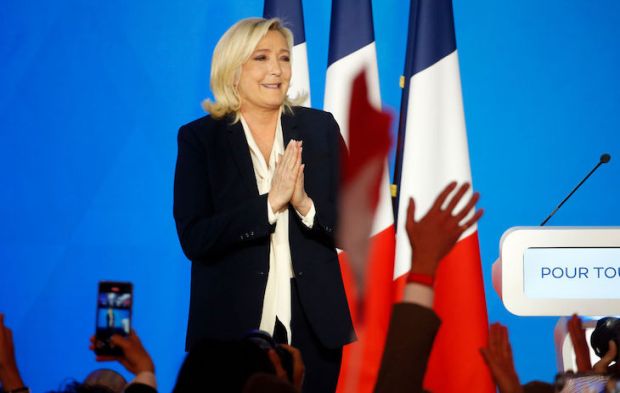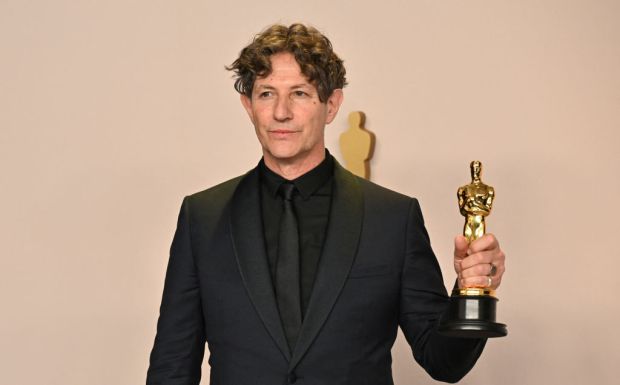It was a stripped-down service, pared back to its essentials by a prince and by a pandemic. Covid-19 shrunk the congregation and forced the thirty, mostly royal mourners who made the cut to wear masks, observe social distancing and resist the urge to sing, even when it was the National Anthem.
Prince Philip had ensured it captured and amplified his affinity with the sea and for the military. He signed off its crucial elements back in 2003. At his insistence there was no sermon. As he once remarked, ‘the mind cannot absorb what the backside cannot endure’.
The noises off of recent days were silenced. The fuss over uniforms forgotten. William and Harry, having failed to walk side by side behind their grandfather’s coffin as it was brought to the chapel, did do just that when they left the service. They chatted. They have much to talk about and resolve.
Inside St George’s Chapel the focus was on a departed duke and a monarch in mourning. The Queen sat alone, head often bowed, dressed in black. Theirs was a union between a cautious woman and a forthright man that was tested and endured. For 73 years. Little wonder she is said to have described the death of her husband as having left ‘a huge void in her life’.
She’ll mark her 95th birthday next week without the man by her side whom she relied so much on. Tempting as it might be, she will not be putting her feet up. Retirement remains a non-starter. Nor will she disappear from view. She will continue to reign, visibly. When Earl Mountbatten was murdered by the IRA, she told someone that she would not be ‘drawing down the blinds. I am not Queen Victoria’.
Like Victoria, she is now experiencing the pain of having lost her beloved consort. Philip took on a conspicuously ill-defined role and gave it heft. In the early days, it was all about trial and error. As well as being beside the Queen’s side, he used to be in charge of family matters. Not recently. Not anymore. Without him, they’ll have to navigate the many challenges of the months ahead, not least the one posed by Prince Andrew. When, if ever, can Philip’s son escape the toxicity of his jaw droppingly foolish friendship with Jeffrey Epstein, the convicted sex offender?
That’s a question for the future. For now, the Windsors and the wider world have paused to mark Philip’s passing. His century-long time on earth encompassed the end of an Empire, the end of the Cold War and the arrival of a deadly virus.
Prince Philip was a complex character, given to multiple acts of kindness and to brusqueness. Staff described him as bracing. The former exile, immigrant and at times solitary figure, now lies in a royal vault containing the remains of three kings in the grounds of a castle that is an enduring symbol of the British monarchy.
Much has already been written about his legacy and the crucial role he played supporting his wife and sustaining the monarchy, particularly at moments of peril. When he was asked what he thought his epitaph should be, Philip replied, ‘I’m not really concerned. I’ll be dead then’.
He was arguably the most interesting member of the Royal Family. He was the voice on the bridge, one of his former military colleagues once said, and it arrived over the loud hailer. That rarely dull voice, capable of inspiring and on occasion riling, has fallen silent.
Got something to add? Join the discussion and comment below.
Get 10 issues for just $10
Subscribe to The Spectator Australia today for the next 10 magazine issues, plus full online access, for just $10.




















Comments
Don't miss out
Join the conversation with other Spectator Australia readers. Subscribe to leave a comment.
SUBSCRIBEAlready a subscriber? Log in